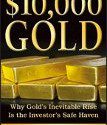“It’s far better to buy a wonderful company at a fair price than a fair company at a  wonderful price”, “We simply attempt to be fearful when others are greedy and to be greedy only when others are fearful” and 24 other unforgettable and highly quotable quips on investing by Warren Buffett over the years.
wonderful price”, “We simply attempt to be fearful when others are greedy and to be greedy only when others are fearful” and 24 other unforgettable and highly quotable quips on investing by Warren Buffett over the years.
The following post by Ivaylo Ivanhoff (stocktwits.com) under the title 26 Market Wisdoms from Warren Buffett needs no further introduction and is presented here by Lorimer Wilson, editor of www.FinancialArticleSummariesToday.com and www.munKNEE.com and the FREE Market Intelligence Report newsletter (sample here – register here). Please note that this paragraph must be included in any article reposting with a link to the article source to avoid copyright infringement.
- It takes 20 years to build a reputation and 5 minutes to ruin it. If you think about that, you’ll do things differently.
- Chains of habit are too light to be felt until they are too heavy to be broken.
- Risk comes from not knowing what you’re doing.
- Only when the tide goes out do you discover who’s been swimming naked.
- If past history was all there was to the game, the richest people would be librarians.
- I never attempt to make money on the stock market. I buy on the assumption that they could close the market the next day and not reopen it for five years.
- It’s far better to buy a wonderful company at a fair price than a fair company at a wonderful price.
- We simply attempt to be fearful when others are greedy and to be greedy only when others are fearful.
- Time is the friend of the wonderful business, the enemy of the mediocre.
- The stock market is a no-called-strike game. You don’t have to swing at everything–you can wait for your pitch. The problem when you’re a money manager is that your fans keep yelling, ‘Swing, you bum!
- Long ago, Sir Isaac Newton gave us three laws of motion, which were the work of genius. But Sir Isaac’s talents didn’t extend to investing: He lost a bundle in the South Sea Bubble, explaining later, “I can calculate the movement of the stars, but not the madness of men.” If he had not been traumatized by this loss, Sir Isaac might well have gone on to discover the Fourth Law of Motion: For investors as a whole, returns decrease as motion increases.
- The best thing that happens to us is when a great company gets into temporary trouble…We want to buy them when they’re on the operating table.
- I try to buy stock in businesses that are so wonderful that an idiot can run them. Because sooner or later, one will.
- If I ever write a book, it will be titled ’why smart people do stupid things’. My partner says it should be autobiographical. If you risk something that is important to you for something that is unimportant to you, it just does not make any sense. I don’t care what the odds are for you to succeed.
- You only have to get rich once. That seems pretty fundamental.
- History does not tell you the probability of future financial events happening. The beta of the stocks doesn’t tell you about the risk of the stock.
- I like businesses I can understand. It is not an easy business for competitors to enter. I look for a competitive advantage – cost, brand, share of mind is priceless (better than market share). How much could anyone hurt them if they had a billion or 10 billion dollars. If they can’t make a dent, I am in.
- I want to know What a business will look like 10 years from now. If I can’t see them where they will be 10 years from now, I don’t buy them. We are buying a piece of a business. You will do well if the business does well if you didn’t pay too high of a price.
- We don’t have huge returns, but we don’t lose our money either (they are already rich. They are not going to take the risk and go after outsize returns. They don’t expect to get high returns from business that won’t change for 10 years)
- The best buys have been when the number almost tell you not to. Then you feel so strongly about the product. Almost every business we bought is takes 5 or 10 minutes in terms of analysis. If you don’t know enough to understand the business instantly, a couple months of analysis won’t change that too much.
- People are going to get out of bed and work productively around the world to meet the needs of their family. People are going to spend and there will always be some companies that will sell something that people would love to trade their money against.
- Coke Cola IPO-ed in 1919 for $40. A year later, it was $19. You can always find a few reasons why that was not a good time to buy it, but if you bought 1 share at $40 and re-invested the dividends, you would have $5 million today. This factor overrides everything – all macro concerns you could have. There is never a perfect time to buy a great business; there are always reason to worry, but you should also know when it is wise to worry at all. For things that are unimportant or unknown, you should not worry. If you are right about the business, you will make a lot of money over time.
- My biggest mistakes have been buying an attractive security in an unattractive business, where I liked the terms, but didn’t like the business.
- We don’t spend any time looking back at Berkshire. There’s so much to look forward to that it just doesn’t make sense to look behind. You can only live life forward. You can learn something from the mistakes (preferable other people’s mistakes), but the big thing to do is to stick with the businesses you understand. You want your decision making to be by looking in the mirror – stay in your circle of competence. You should be able to explain why you are buying a stock: “I am buying 100 shares of XXX, because….it is your responsibility to know. There is got to be a reason you buy a business. There is got to be a reason you buy a stock.
- I don’t think about the macro stuff. Figure out what’s important and knowable. We’ve never bought or not bought a business because of interest rates or any macro projections.
- If you are on Wall street, you might get overstimulated. All you need is one good idea a year and then ride it. It is very hard to ride one idea when you get so much new information every day.
*http://stocktwits50.com/2013/09/09/26-market-wisdoms-from-warren-buffett/ (Ivaylo Ivanhoff, creator of the algorithm behind the ST50 list and co-author of the books ‘The StockTwits Edge’ (2011) and ‘Finding The Next Apple (2013)’; © 2013 StockTwits 50™)
Related Articles:
1. Warren Buffett’s Classic Analysis of “Mr. Market” – a Must Read for ALL Investors
If you aren’t certain that you understand and can value your business far better than Mr. Market, you don’t belong in the game. As they say in poker, “If you’ve been in the game 30 minutes and you don’t know who the patsy is, you’re the patsy.” Read More »
2. Portfolio Down? Apply These Wise Sayings to Successfully Rebuild It
When the stock market reaches extreme levels of distress, the average investor – particularly those who have done their own research and made their own investment decisions – panic at seeing their savings diminish to such an extent. They often start questioning whether they should be making their own decisions and often their reaction is to salvage what is left and sell, sell, and sell some more. [Regretfully, that is not what one should do. Let me explain why that is the case and what you should be doing – NOW.] Words: 380 Read More »
3. Words of Wisdom from Warren Buffett
To invest successfully over a lifetime does not require a stratospheric IQ, unusual business insight, or inside information. What’s needed is a sound intellectual framework for decisions and the ability to keep your emotions from corroding that framework. Words: 895 Read More »
4. Words of Wisdom From the Most Brilliant Investors Ever
There’s a bewildering amount of advice on how to invest…so it’s worthwhile, especially in today’s volatile markets, to take a look at what has actually worked, as opposed to what people claim works. We’ve collected some of the finest wisdom on markets from the most respected and successful investors, past and present. Words: 865
5. The Stock Market Will NOT Rise Indefinitely So Here Are 10 Investment Rules To Live By
As the markets are propelled higher by the successive interventions of the Federal Reserve, it is hard not to think that the current rise will continue indefinitely, but the reality is that markets cycle from peaks to troughs as excesses built up during the up cycle are liquidated…This time…[will be no] different…[so what’s an investor to do? Below] are 10 basic investment rules that have historically kept investors out of trouble over the long term [and hopefully will for you as well]. Read More »
6. Should Stocks Be the Cornerstone of Your Portfolio?
There is a common notion that stocks, at least if held for a long-time, outperform other assets [and, as such,] should be the cornerstone of any long-term portfolio. [While that is indeed true,] it is best to focus first on how much you are able and willing to lose (i.e. what risk you are able and willing to bear) when determining the optimal allocation for your portfolio. [Only] then [should you] think about what potential investment returns you might be able to capture. [Let me explain.] Words: 1503 Read More »
7. Which of These 10 Behavioral Biases Adversely Affect How You Invest?
Cognitive biases plague us and make it difficult for us undertake adequate analysis and make good choices so knowing about them is imperative if we are going to deal with them. This article identifies 10 such biases and how they impede us making the right investment choices. Read More »
Here’s my list of the most common errors investors make and some related maxims. Read More »
There is a crucial component of the investment process that gets surprisingly little attention: our investment default settings. We can use them when we aren’t sure what to do, when we’re deciding what to do, when our circumstances have changed but our plan hasn’t (yet), or when we’re just starting out. Here they are. Read More »
10. Warren Buffett On Why Stocks Are Better Investments Than Gold and Bonds
Investing is often described as the process of laying out money now in the expectation of receiving more money in the future. Investment possibilities are both many and varied. There are three major categories 1) currency-based investments, 2) gold bullion and 3) investment in productive assets, and it’s important to understand the characteristics of each. [Let me explain the differences and why I choose the latter.] Words: 1780 Read More »
13. Self-manage Your Portfolio? Think Again! Here Are 10 Reasons You NEED a Financial Advisor
The amount of evidence stacking up that…mutual funds…do not provide value for their investors is just staggering…While there are certainly signs that the public’s tolerance of excessive fees and executive pay is falling, the likelihood of significant structural change in the finance industry is still remote. Given such a backdrop the probability remains that investors in funds will, on average, continue to underperform their benchmarks. So what is an investor to do? [Read on!] Words: 830
While the average amateur investor may be excellent in their own career field, it doesn’t mean they know what to invest in, or how to pick stocks. In fact being very good at your field can give you the false sense that whatever stocks you pick or your broker picks for you must be good, because after all, you picked them and you picked your broker — and you’re smart so, no doubt, those stock prices will go up. Unfortunately, the smart and talented stock-picking neophyte is not investing at all but speculating. Words: 924
17. Follow Bob Farrell’s 10 Rules of Investing – or Suffer the Consequences
Individuals are long-term investors only as long as the markets are rising. Despite endless warnings, repeated suggestions and outright recommendations – getting investors to sell, take profits and manage…[their] portfolio risks is nearly a lost cause as long as the markets are rising. Unfortunately, by the time the fear, desperation or panic stages are reached it is far too late to act and I will only be able to say that I warned you [- unless you take the time to read, and study the contents of this article]. Words: 1945; Charts: 10; Tables: 1
18. THE 10 Most Dangerous Investing Mistakes
Protect your money by steering clear of these 10 most dangerous investing mistakes. Words: 716
19. Recognize These 7 Emotions Before You Buy or Sell an Investment
Since there is such a wide range of emotions, it might be helpful for you to do a ‘gut-check’ before you actually buy or sell any type of security. Knowing how you “feel” about investing might turn out to be just as important as knowing what you “know.” Words: 737
20. 10 Timeless Investment Rules to Survive This Stormy Stock Market
Rules may be meant to be broken, but with investing ignoring the rules can break you – especially now. Investment rules are tailor-made for tough times, allowing you to stick to a plan just when you need it most. Indeed, a rulebook is important in any market climate, but it tends to get tossed when stocks are soaring. That’s why sage investors warn people not to confuse a bull market with brains. Here are 10 rules to survive this stormy stock market. Words: 769
21. Don’t Invest in the Stock Market Without Heeding These “Rules of Trading”
I’m not going to candy coat it for you: making serious money in the stock market is a ton of hard work. It takes patience, savvy, and a certain level of market smarts – and the cold, hard truth is that if you don’t have them, the big boys will drain your portfolio dry. Unfortunately, those are the three areas that most retail investors need to work on the most. Otherwise, they will simply end up in a cat-and-mouse game where they are the mice. Don’t fool yourself for one second into believing that your “due diligence” can be done by watching a show or two on CNBC. It just doesn’t work that way but if there is one voice from the markets that should grab your attention every time you hear it, it belongs to Dennis Gartman, founder and author of The Gartman Letter. He’s sort of a guru’s guru. [Here is] a glimpse into how he views and trades the markets. Words: 106
22. 12 Books that EVERY Financial Advisor – and Investor – Should Read
Bill Ackman, founder of Pershing Square Capital Management, believes the following books are essential financial reading. Enjoy the summer! Words: 235
23. Understanding Systematic Risk, Modern Portfolio Theory and the Efficient Frontier
Risk inherent to the entire market or market segment is referred to as systematic risk and modern portfolio theory says that a blend of investments has the potential to increase overall return for a given level of risk, and/or decrease risk for a given return that the investor is trying to achieve. The expected risk/return relationship is known as the efficient frontier. [If you have a portfolio of investments then you need to fully understand what all this really means and how you can apply it to your portfolio makeup to enhance returns under any circumstances. Let me do just that.] Words: 1325
24. Don’t Invest in the Stock Market Without Reading This Article First
History has shown that investors who stick to disciplined, fundamental-focused strategies give themselves a good chance of beating the market over the long haul and James O’Shaughnessy has compiled data that stretches back to before the Great Depression, back-tested numerous strategies, and has come to some very intriguing conclusions. [Let me share some of them with you.] Words: 1325
25. Asset Allocation: How Sound is the Foundation of Your Portfolio Pyramid?
Regardless of the size of your financial pyramid, without a core-holding foundation, you are building it on sand. Core holdings are for protection, not for profit. They function as insurance against a catastrophe. [Let me explain.] Words: 754
26. Your Portfolio Isn’t Adequately Diversified Without 7-15% in Precious Metals – Here’s Why
The traditional view of portfolio management is that three asset classes, stocks, bonds and cash, are sufficient to achieve diversification. This view is, quite simply, wrong because over the past 10 years gold, silver and platinum have singularly outperformed virtually all major widely accepted investment indexes. Precious metals should be considered an independent asset class and an allocation to precious metals, as the most uncorrelated asset group, is essential for proper portfolio diversification. [Let me explain.] Words: 2137
27. Apply the Bell Curve to Your Portfolio Asset Diversification – Here’s Why
80% of my investable income is in cash, precious metals and a small number of stocks. That might seem crazy, but the Pareto Principle, Zipf’s Law and the bell curve have convinced me that it’s a waste of time and money to get any more diversified. [Let me explain why that is the case.] Words: 396
28. Yes, You Can Time the Market – Use These Trend Indicators
Remember, the trend is your friend and now you have an arsenal of such indicators to make an extensive and in-depth assessment of whether you should be buying or selling. If ever there was a “cut and save” investment advisory this article is it. Words: 1579
29. Ride the Market Waves With These 6 Momentum Indicators
It is hard to know what to buy or sell let alone just when to prudently do so. Thank goodness there are indicators available that provide information of stock and index movement of a more immediate nature to help you make such important decisions. This article describes the 6 most popular Momentum Indicators. If ever there was a “cut and save” investment advisory this is it! Words: 1234
30. Here’s How to Time the Market!
There are many indicators available that provide information on stock and index movement to help you time the market and make money. Market strength and volatility are two such categories of indicators and a description of six of them are described in this “cut and save” article. Read on! Words: 974
31. Understanding the Patterns, Trends, Indicators and Formations of Technical Analysis
Technical Analysis is the discipline of finding reliable patterns, trends, indicators and formations, mainly in price, for buying and selling assets…To a large degree, technical analysis is a self-fulfilling prophesy [in that] it is effectively an unofficial agreement amongst market participants to impose more order on what would otherwise be more random. The key is to understand which patterns, formations and indicators are widely adhered to, so as to become useful predictors of price action [and this article does just that. Let me explain.] Words: 470
32. The P/E Ratio: Its Strengths and Limitations
When it comes to valuing stocks, the price-to-earnings (P/E) ratio is the number one metric for investors that want an instant fix on what the market thinks of a company. [That being said], there are health warnings to heed if you don’t want to be left exposed by its limitations. [Let me explain.] Words: 1101
33. Here’s How to Crash-Proof Your Portfolio
With the stock market seemingly reaching new highs every day, should we worry about a crash that puts an end to the party? If so, how should investors prepare? Let us explain. Read More »
34. Portfolio Up? Here’s a Powerful Strategy to Protect Your Gains
Use a portion of your portfolio in the form of credit spreads to protect and drive income over the next nine months. It’s an extremely simple strategy to learn and arguably the most powerful strategy in the professional options traders’ tool belt Read More »
35. Prefer “Home Run” Style Investing? Here Are 7 Ways to Greater Success
Most “home run” investments evolve over time. Rarely do they happen overnight. Investors have to put themselves in the right position to “get home” by getting off to a good start with the investment to begin with. This, along with a little luck, dramatically increases the chance of a big winner. Here are seven recurring themes to such “home run” style investing. Words: 640 Read More »
When I first considered a high-yield investing strategy, my goal was to devise a portfolio that yielded between 6% and 8% annually. To be sure, that’s a worthy starting point. Years from now, however, I expect to own a portfolio that yields 25%, 50% and even 100% on the cost basis of many of the investments in that portfolio. [You, too, can achieve the same return on investment for your portfolio. Here’s how.] Words: 636 Read More »
39. Conventional Stock Market Investing Advice Is Rooted in Myth! Here Are the Facts
The conventional stock market investing advice is rooted in myth – rooted in a false understanding of what the historical stock-return data says about investing for the long-term….Set forth below are five reasons why I believe that the conventional stock market investing advice must soon change. Words: 2067 Read More »
40. Be Careful! Former Investment “Rules” Nolonger Work – Here’s Why
What hope can there be for motivated stock pickers – no matter how much they sweat and toil – to outperform the low-cost index funds that simply mechanically track the market? Well – in spite of the absurd rise of the Nobel-acclaimed, and highly promoted, Efficient Market Hypothesis that claims that individual investors can’t beat the market – it turns out there is plenty! Just ask Warren Buffett, for one. [Let me explain.] Words: 1574 Read More »
44. “Applied Value Investing” – A Book by Joseph Calandro
Being afflicted with an Austrian outlook can turn many a would-be investor into a permabear. Indeed, if I were truly a hardcore advocate of Austrian investing, my only assets would be a shotgun and a bag of gold because, up until now, I have never come across any writing that attempted to weld Austrian thought onto an investment framework. Words: 953 Read More »
 munKNEE.com Your Key to Making Money
munKNEE.com Your Key to Making Money








